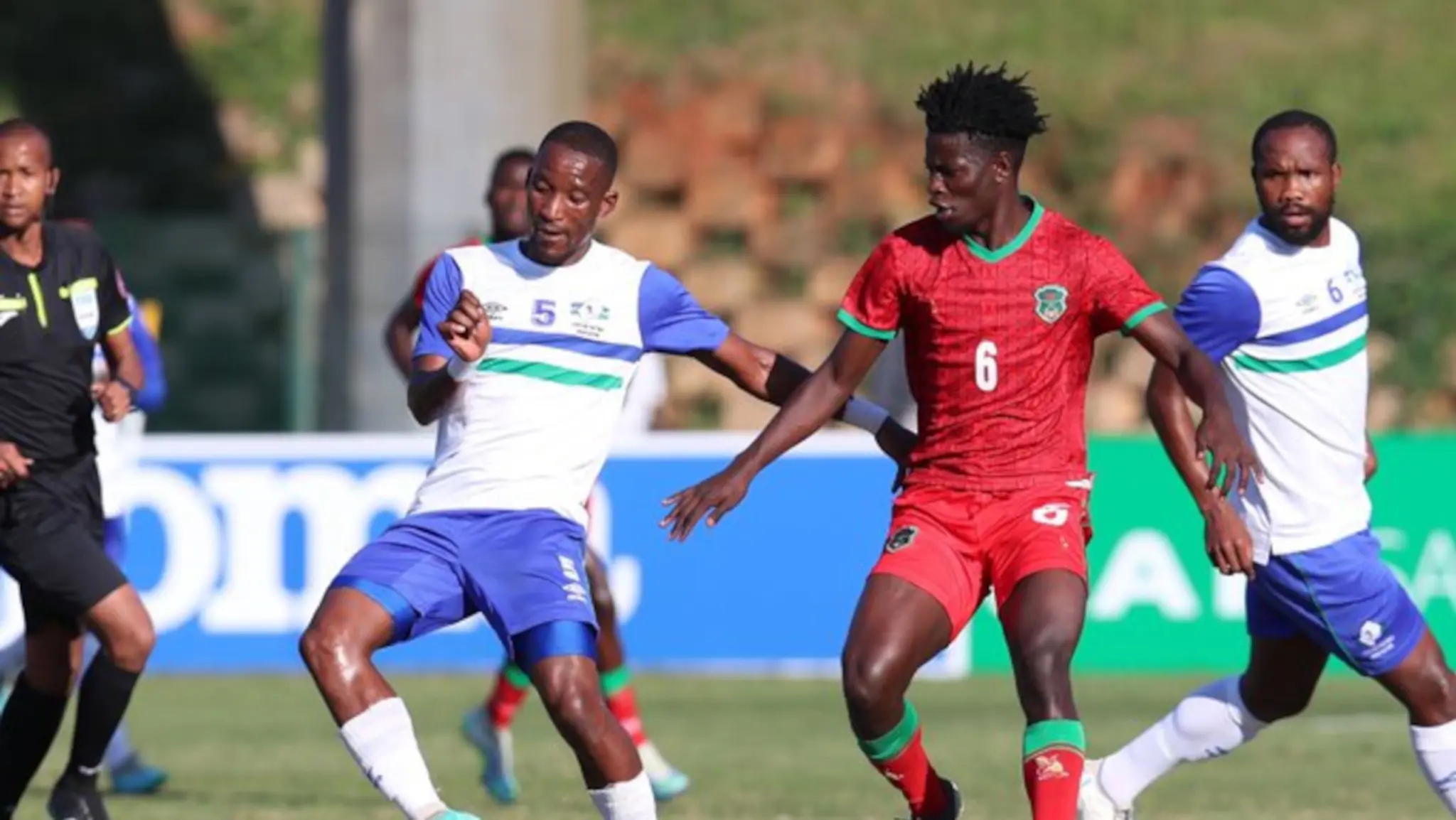Advertisement
How Lesotho's Crocodiles extinguished Cosafa Cup’s brightest Flames

On the very same tender beds where Malawi interim boss Patrick Mabedi placed hopes of an entire nation, the Flames crumbled under the weight of expectations on Friday, July 14 in South Africa.
Mabedi, whose name means beds in Malawi vernacular, saw his otherwise bright Flames extinguished by the jaws of Lesotho’s Crocodiles in the coastal city of Durban.
A 3-0 post-match penalty shootout loss to Lesotho after a 1-1 draw in regulation time at King Zwelithini Stadium not only ended the Flames’ Hollywoodbets Cosafa Cup adventure, but also dashed the hopes of an entire nation.
Flames found wanting on game-management
It was not like the Flames were outplayed, but they were just outthought by the smarter Lesotho.
Not that Lesotho possessed better talent, but they were more experienced and had a plan which they executed to perfection. It was all about game management.
In contrast, as Malawi Broadcasting Corporation TV sports presenter Amin Musa observed, “Lesotho did their homework on how to deal with their opponents, whereas the Flames didn’t.”
It seemed that Mabedi had, as was the case in the 1-0 win over Zambia and 2-0 beating of Comoros and Seychelles in the group phase, just instructed his boys to go flat out on attack.
However, in tournament football, especially in the knockout stages, game management matters more than anything else.
Actually, Lesotho appeared more dominant even after being reduced to 10 men, thanks to Brighton Munthali’s telling saves which kept the Flames in the semifinal game.
How Lesotho coach got his tactics right
Lesotho coach Leslie Notsi got his tactics right using speed and width in the wings, going physical and aerial while by-passing Malawi’s midfield with long balls.
The small frames of Malawi all over the pitch found Lesotho’s approach intriguing and frustrating because in one moment the Crocodiles would be under pressure, then in another peppering the Flames’ goal posts.
Suddenly, left-back Alick Lungu was pinned in his own half, forced to defend more than attack. Striker Christopher Kumwembe was isolated and helpless. Goalkeeper Munthali found himself bombarded by missiles from all angles.
Malawi hardly kept the ball save in pockets of spaces where Lesotho did not feel threatened in this semifinal contest.
It was a high-tempo match with Malawi showing faith in its rediscovered all-out attacking play, whereas Lesotho sat deep and waited to seize their moments to counterattack at blistering speed.
Little wonder, Lesotho punished the Flames as a cross from the right was whipped in front of Munthali and beyond the Malawi defence for Jane Thabantso to slot in the 18th minute.
Eight minutes later, Mkhwanazi handled Patrick Mwaungulu's powerful drive and from the resultant spot-kick, Chawanangwa Kaonga converted, sending keeper Sekhoane Moreane the wrong way.
A few minutes later, Malawi escaped a penalty scare after Kumwembe appeared to handle in the box.
Thereafter, Thabantso threatened to restore Lesotho's lead when he met a cross from the left on the turn before sending his overhead kick into the sky, much to Munthali's relief.
The match turned ugly when the referee sent Motlomelo Mkwanazi for an early shower a minute before halftime following a reckless challenge on Kaonga.
Mabedi’s tactical flaws
Mabedi deserves all the credit for revamping the Flames by restoring their traditional style of passing football and placing trust in new faces such as Lloyd Aaron, Lanjesi Nkhoma, Alick Lungu, Robert Saizi and Patrick Macheso.
However, against Lesotho, his tactical flaws were exposed. He failed to exploit Lesotho’s numerical inferiority. He maintained four defenders instead of throwing more men in attack.
The two teams went to break at 1-1 and when play was resumed, Mabedi replaced Mwaungulu with Gaddie Chirwa while seeking to increase the lead while Lesotho, on the other hand, were hell-bent on winding down the clock.
Malawi nearly made use of their numerical advantage but Kaonga side-footed his effort away from close range with the goal-mouth gaping in the 56th minute.
Mabedi finally dragged wasteful Kaonga off for Patrick Macheso in the 65th minute, but the Flames could not restore their lead and eventually, penalties had to settle the affair.
Once again, Mabedi read the tactical script wrong when he benched Munthali for Vincent Nyasulu, who appeared out of his depth. He even struggled to guess the right direction of the penalty kicks.
In contrast, Lesotho keeper Mosoeu Seahlolo saved Stanley Sanudi, Patrick Macheso and Idana’s penalties while Likuena converted all three of their attempts through Sera Motebang, Sekhoane Moreane and Thabantsi. It was game over for Malawi, who will now fight for bronze against South Africa.
While the defeat is obviously painful, the reaction among most Malawians is that the inexperienced players Mabedi opted to travel with to South Africa impressed with the preferred attacking style of play.
It was a complete departure from Mabedi’s former boss Mario Marinica’s fast football which fans hated with a passion.
Surely, conceding once in four games while scoring five goals is impressive, but after all is said and done, football is about trophies.
Malawi last won silverware in 1988. With two experienced players, perhaps the Flames could have gone on to win the Cosafa Cup.
Starting lineups:
Malawi: Brighton Munthali, Stanley Sanudi, Nickson Mwase, Alick Lungu, Chembezi Denis, Chimwemwe Idana, Patrick Mwaungulu, Lanjesi Nkhoma, Lloyd Aaron, Kaonga, Christopher Kumwembe.
Lesotho: Moerane, Makepe, Mkhwanazi, Rasethuntša, Malane, Lebokollane (Toloane 89'), Bereng (Tseka 46'), Thabantso, Lesaoana, Mokhachane, Sefali (Sera 82').
Advertisement